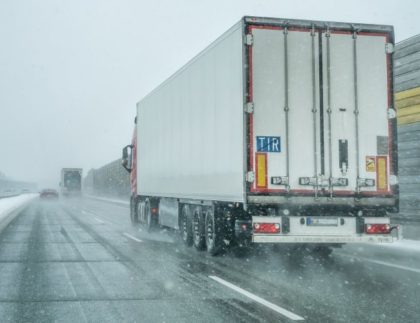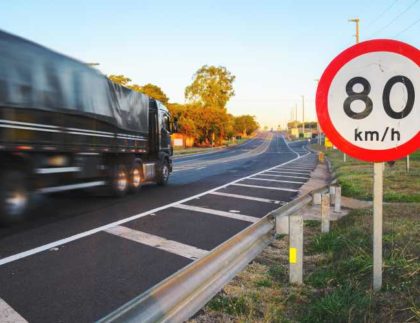

A driver employed under an employment contract by a transport company who performs international transport outside the company’s country of registration is treated as a posted employee. As of February 2022, Directive 2020/1057[1], laying down specific rules for posting drivers and obligations regarding the documentation required during roadside inspection and company inspection, should be in force in every European Union member state. Due to the mobile nature of drivers’ work and the complexity of regulations in each country, this act was necessary to unify the obligations of companies and drivers working in the European market.
Driver posting is understood as cabotage operations (i.e., loading and unloading performed in a member state other than the one in which the vehicle is registered), as well as cross-trade operations – transporting goods between two countries other than the company’s country of residence.
One of the main goals of the legislation was to introduce a uniform system for declaring driver posting and to standardize control procedures. As of February 2022, transport companies are required to register posted drivers in the Road Transport – Posting Declaration system. The system streamlines existing procedures under which the transport company had to declare drivers separately for each country, according to the regulations applicable there. In practice, this required knowledge of each country’s driver posting system.
After three years of the new system functioning, statistics have been published that demonstrate which countries are leading in cross-trade and cabotage operations in Europe. More than 50 million posting declarations have been registered in the system. It is worth recalling that a declaration for a single country can be issued for a maximum of 6 months, so this number also includes multiple declarations of drivers to different countries with different validity periods.
Most declarations were sent by companies registered in Poland – 37.45% of all declarations. Companies from Lithuania ranked second with 21.31% and Romanian companies ranked third with 10.52%. This means that companies from these three countries together perform nearly 70% of cross-trade or cabotage operations in Europe.
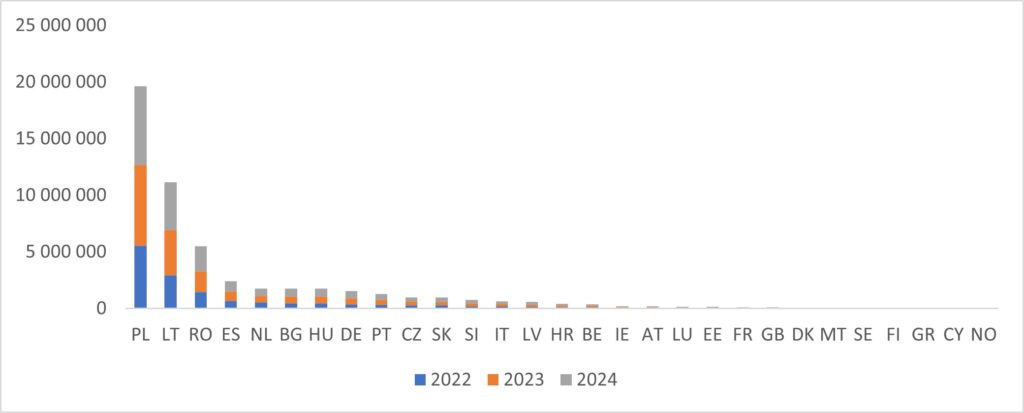
It is also worth looking at statistics on the countries to which drivers are most often posted. In this case, declarations are more evenly distributed. Germany has the highest number of declarations, at 7.62%, followed by France at 7.45%, Belgium at 6.43% and the Netherlands at 6.39%.
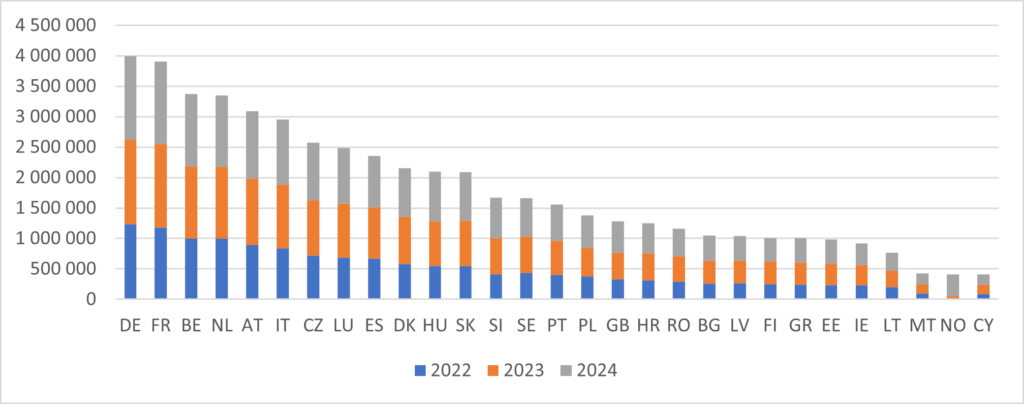
Once the posting has been declared and the transport operation has been carried out, the time comes to verify the obligations fulfilled by the company. In terms of posting, this means proper settlement of the driver’s salary, not only according to the regulations of the company’s country of registration, but also of the country where the transports were performed. The primary goal of the introduced regulations is to level the playing field in the European market and eliminate fraudulent carriers who bend the rules or operate outside them.
Therefore, it is very important to enforce the obligations imposed on carriers by the relevant inspection authorities of individual countries. In this case Directive 2020/1057 [2]and the Road Transport – Posting Declaration system are also helpful. The directive introduces a closed catalogue of documents that can be requested by the inspection authority: payrolls, pay receipts, working time records, waybills, employment contracts, tachograph records. This documentation should be submitted by the transport company no later than the end of the 8th week after receiving the request from the inspection authorities.
If there is no response, the inspection authorities may ask for assistance from local authorities to obtain the required documentation. According to statistics data, nearly 30% of inspections require the support of local authorities. This may indicate that the notification system for initiating inspections is inadequate and operates in a way that is easy to overlook – this is certainly an element that needs improvement.
According to statistics, the number of inspections carried out in relation to the number of declarations is negligible, not even 1% of all declarations. This shows how much work still awaits inspections in member states. Enforcement is one of the key elements – without it, even the best legislative intentions will fail.
It is worth noting that the countries to which drivers are most often posted, such as France, the Netherlands, Belgium and Italy, carry out inspections infrequently or not at all.
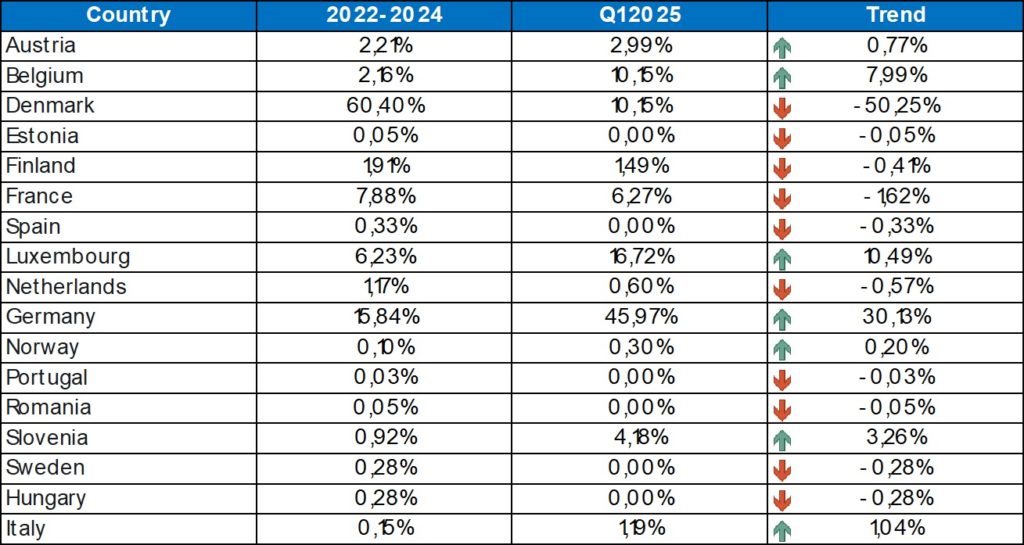
The Road Transport – Posting Declaration system is intended to serve transport companies and streamline complex procedures for posting drivers. The unification of the declaration process, documentation requirements on the road and during inspections is a step in the right direction on the part of European lawmakers.
Now it is time for effective enforcement by the countries most concerned with compliance, but also by the other members of the common market. Only then will transportation in Europe be fully fair and equal for carriers from all countries.
[1] Directive (EU) 2020/1057 of the European Parliament and of the Council of 15 July 2020 laying down specific rules with respect to Directive 96/71/EC and Directive 2014/67/EU for posting drivers in the road transport sector and amending Directive 2006/22/EC as regards enforcement requirements and Regulation (EU) No 1024/2012
[2] Directive (EU) 2020/1057 of the European Parliament and of the Council of 15 July 2020 laying down specific rules with respect to Directive 96/71/EC and Directive 2014/67/EU for posting drivers in the road transport sector and amending Directive 2006/22/EC as regards enforcement requirements and Regulation (EU) No 1024/2012



